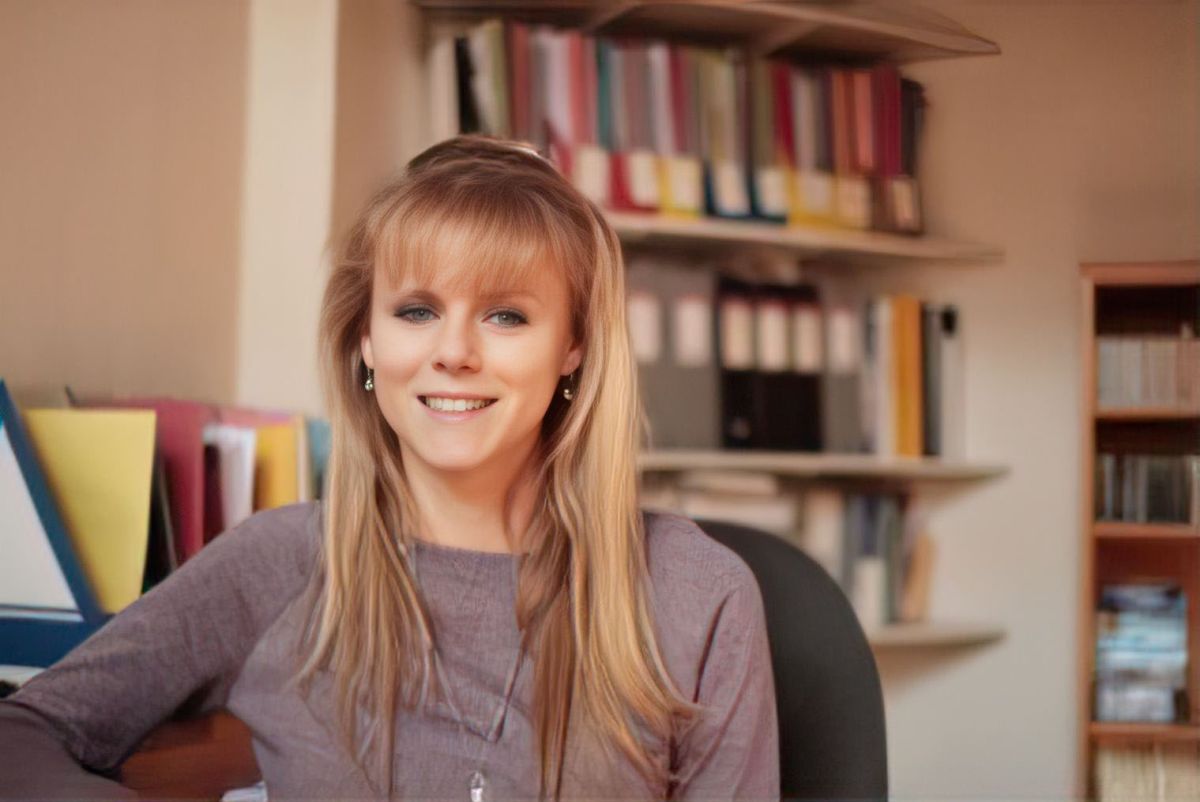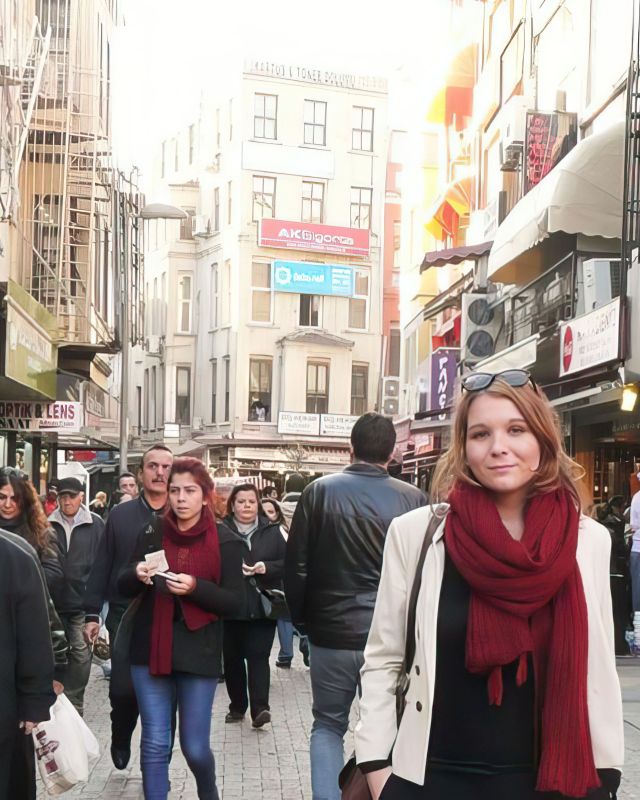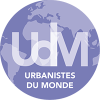Portrait

Sarah Maire, STU Class of 2013, researcher at ACADIE and CIFRE thesis in sociology
Posted on | Alumni Portrait
Portrait by Basile on February 15, 2014
The University College and the choice of the STU Master
Sarah Maire entered Sciences Po Paris in Bac+0 and studied at the Collège Universitaire in a double major with Paris 6 (sciences) before spending her 3A in California, at the University of Santa Cruz. During her 3rd year abroad, she mainly studied urban sociology while working and getting involved in various associations.
Her choice of master's degree was immediately made in Territorial and Urban Strategies, the only one that appealed to her in the long list of masters offered at Sciences Po. This decision was first motivated by her desire to work in the neighbourhoods, even though she herself grew up in the suburbs, more than an hour's transport away from Sciences Po. Moreover, the social side and the sociology of public action have always interested her more than purely urban issues and planning.
A group project and then an internship with the Paris City Council during the M1 year
During her M1, Sarah carried out her collective project on a plan to combat illiteracy among young people aged 16 to 25. The project was commissioned by the Délégation à la Politique de la Ville et à l'Intégration (DPVI) of the Mairie de Paris. Sarah found this work interesting, but it also made her aware of the limited room for manoeuvre, particularly due to financial, administrative and political obstacles. She thought more about her professional project and decided to apply for a one-month unpaid internship during the summer of 2012, still at the DPVI, with her former tutor. This internship allowed her to discover several themes: youth, gender equality... and especially economic development and employment. She then realised that she wanted to "make people actors in their own lives", by emphasising their potential rather than their weaknesses or the discrimination to which they are subjected. For her, the challenge is to "provide employment opportunities" to people from neighbourhoods or minorities who do not necessarily have access to them, while working on the system as a whole rather than on derogatory policies. In addition, during her internship, she discovered people working in consultancy firms. She appreciates their role in navigating between public actors and the business world. She also observes this recomposition of public action and the multiplication of these hybrid actors in the master's programme, where she studies the delegation to external actors (agencies, consultancy missions, reports delivered on a turnkey basis to administrations, etc.).
M2: deepening and clarifying the career path
Sarah chose most of her M2 courses in the social field, with specific ideas in mind, not only to help the most marginalized but to deal with the rise of public policies in general. She then met Philippe Estèbe, a professor in STU who also works at ACADIE. She keeps a good contact with her professor, which allows her to do her end-of-studies internship in this firm. She does not regret this decision, despite the fact that she had to give up a competing offer in a larger firm, especially since ACADIE's activity is not limited to consulting but extends to research and the scientific field.
The M2 internship at ACADIE
ACADIE is a cooperative created in the late 1970s by activists and researchers who participated in the implementation of the Urban Policy. Their work then focused on the themes of metropolisation and territorial development. Sarah is supervised by two internship supervisors, Philippe Estèbe and Martin Vanier, two figures from ACADIE who do not have an office there because they are often called upon for external projects. The trainee became close to the director of studies, Stéphanie Morel, with whom she undertook new missions in the field of education and youth support, which enabled her to be recruited at the end of her internship. She was finally hired on a permanent contract at the end of a fixed-term contract. At this point, a new project came to mind: to conduct a thesis at ACADIE, in parallel with her work as a research officer.
The thesis in parallel with his activity at ACADIE
Before, Sarah had never imagined doing a thesis, which seemed to her to be a long and lonely exercise. However, by observing the work of Nicolas Rio, already a PhD student at ACADIE, she discovered more positive and enriching aspects. Admittedly, a CIFRE thesis can only last three years (as opposed to the usual four or five years in the social sciences), but it is carried out in parallel with the work of a consultant, with a projection in one's career: it allows one to progressively evolve from the status of research officer (qualified as a 'junior' or even a 'little hand' who is not highly regarded in certain firms) to that of research director (with more room for manoeuvre in projects, team management and social recognition). In addition, she likes the idea of being a 'double agent', both a consultant and a practitioner who acts, but also a sociologist who analyses the action (while respecting the researcher's principle of neutrality). Sarah then decided to go for it: for her thesis, she had to put together a solid research project and find a thesis director as well as funding. Romuald Normand, a researcher at the University of Strasbourg whom she met during an evaluation mission for the French Ministry of Education, agreed to supervise her thesis, the full (and complicated) title of which is: "Educational innovations and new corporate management practices: an analysis of the transformation of organisational systems and their impact on the careers of the younger generation". Sarah then applied for CIFRE (Convention Industrielle de Formation Recherche en Entreprise) funding, which can be paid to companies for R&D to promote the presence of PhD students. To qualify, you have to be a young graduate of less than three years, have been employed for less than a year and have a convincing thesis project. Sarah obtained this funding, which enabled her to cover all of her expenses for documentation, various registrations, travel... and gave her a part-time job for her thesis work, while maintaining the same level of remuneration. The CIFRE thesis officially began in September 2014 (but she had been working on it unofficially for almost a year, in her spare time). Since then, she has divided her time between working as a researcher at ACADIE and her thesis, each activity part-time, without falling into a routine. She observes that for many PhD students, what counts most in the thesis is the exercise that allows them to develop or even distinguish themselves on an academic level and to make a career in research, rather than the passion for the subject in itself. She was very lucky to be able to choose her subject, which is her primary source of motivation: the desire to discover new knowledge and to share it. The latter concerns 'generation Y', the study of the interaction between the aspirations of young people and the new expectations of companies, between the world of education and the economic world. She still has some time before the defence, but in the end, three years is a short time. In any case, Sarah likes what she does, she is autonomous in her organisation which articulates thesis and professional activity and she is not bored!
Lauranne Callet - GLM 2014 - responsible for the social inclusion and culture committees at United Cities and Local Governments (UCLG-MEWA)
Posted on January 15, 2016
In Situ leaves this month of January 2016 to meet Lauranne Callet, a 2014 graduate of the Governing the Large Metropolis master's program. She is 24 years old…
The Greater Paris, a question of territorial strategy
Posted on December 04, 2014
In November, In Situ went to meet Lisa, a 2009 graduate of the Master's degree in Territorial and Urban Strategies, who is currently in charge of International…
 English
English  Français
Français 




